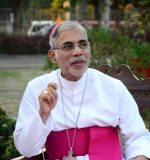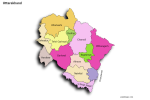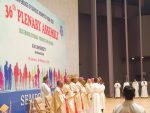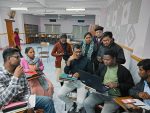By Matters India Reporter
Chennai, May 9, 2022: Christians in Tamil Nadu have expressed surprise that the state’s high court has admitted a public interest litigation to stop forcible conversion of students in schools.
The bench of Justices R. Madhavan and S. Ananthi of the Madras High Court on May 6 admitted the petition and posted the matter to a regular bench on June 6 after the summer vacation ends.
Jesuit Father Arockiasamy Santhanam, spokesperson for the National Lawyers Forum of Religious and Priests, says the vacation court should not have entertained the petition. “One wonders what urgency is found in this petition,” he added.
Father Devasagayaraj M Zackarias, a former secretary of the Office for Scheduled Castes and Backward Classes under the Catholic Bishops’ Conference of India, says he was surprised the High Court admitted the petition when the incidents it has quoted are still under investigation.”
The case, Father Zackarias laments, is nothing but a way to create unnecessary disturbance in the state where schools impart quality education, especially to the poor and the marginalized.
Conversion, he told Matters India, “is always the decision of an individual. Nobody can be forced to convert to any religion.”
India already has laws to prevent conversion by force, cohesion and allurement, Father Devasagayaraj pointed out.
The petition cites the death of a 17-year-old girl by suicide after alleging abuse by her hostel warden, a Catholic nun, to convert her family to Christianity.
The police in January arrested 62-year-old Sister Sahaya Mary, the warden of the hostel in Michaelpatti in Thanjavur district. The member of the Franciscan Sisters of the Immaculate Heart of Mary was subsequently released on bail.
Father Zackarias says some fringe elements used the girl’s death to create “unnecessary problems for their political gains,” but people stood together to thwart their plans.
Father Santhanam points out that the right wing political lobbyists tried to color any event in Tamil Nadu as forced conversions.
“They have been demanding an anti-conversion law in Tamil Nadu as it is in a few states ruled by either BJP or its coalition. But their demands were categorically dismissed. Now they try through judicial means. The court can only recommend and cannot impose even if it is convinced,” the lawyer priest explained.
Maintaining that there has been no evidence of forced conversion in Tamil Nadu, the Jesuit said people, vexed with unending caste discrimination, seek solace and want to experience equality, respect and dignity where they are assured. “This can’t be blocked by any law,” Father Santhanam asserted.
He points out that Tamil Nadu is governed by a Dravidian party that advocates equality, social justice, fraternity and human rights.
“This is totally opposite to the Brahminical model propounded by the right wing ideology. This model uses religion as a weapon, infuses fanaticism and polarizes society for its political hegemony,” Father Santhanam said.
Edward, a social activist based in Vellore, says the sitting bench of the High Court had earlier dismissed the Thanjavur Lavanya case as it did not find any evidence of forced religious conversion.
“Let the government come down von those trying to create religious discrimination. Targeting the Christians on false cases would ruin the peace and harmony of people in the state,” he warns.
Christian schools do not force any child to convert to Christianity. Their mission is to provide quality education and uplift the poor and the marginalized, the lay leader added.
Shalin Maria Lawrence, a writer and social activist based in Chennai, the state capital, says Christian missionaries have served India since the fifth century. They had the power but no forcible conversion had taken place. “Those who ruled us had never tried to convert us,” Lawrence says.
She points out that India has more than 13,000 schools managed Christians and many Hindus have studied in Christian schools but they remain Hindus, she adds.
According to a census taken by the British rulers in 1947, Christians were 20 percent and now they have come down to 2.3 percent. The population of Christians has in fact decreased, Lawrence explains.
The activist says Hindu extremists are using the conversion bogey to oppress the minorities.
It is unconstitutional to accuse Christians of forcible religious conversion in a country where a citizen has the right to practice, propagate and to profess the religion one’s choice.










